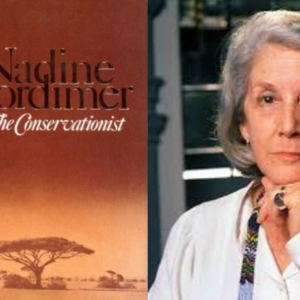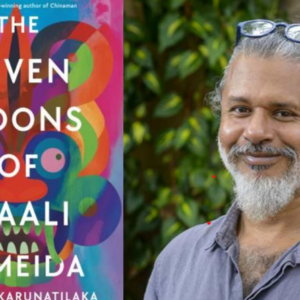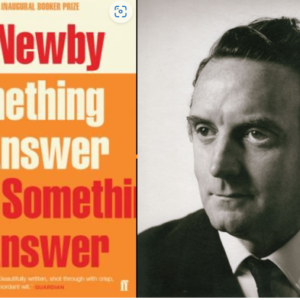Quick Navigation
ToggleIn A Free State
Title: In A Free State
Author: V.S. Naipaul
Genre: Political Fiction
Publication Year: 1971
Awards: 1971 Booker Prize Winner
V.S. Naipaul’s “In A Free State,” winner of the 1971 Booker Prize, is a compelling exploration of displacement, identity, and the human condition set against the backdrop of political and social upheaval. Through a masterful blend of narrative and keen social observation, Naipaul crafts a novel that is both a poignant reflection on freedom and a critique of post-colonial society.
Plot Summary
“In A Free State” is structured in a unique and fragmented way, consisting of a prologue, two short stories, the main novella, and an epilogue. Each section is linked by themes of alienation and the search for freedom.
The novella, which forms the core of the book, follows two expatriates, Bobby and Linda, as they journey through an unnamed African country on the brink of political chaos. Their road trip becomes a vehicle for Naipaul to delve into the complexities of post-colonial Africa, highlighting the tensions between the ruling elites and the native population.
The stories in the prologue and epilogue, set in different countries, further underscore the central themes of exile and identity. The prologue describes an Indian man’s experiences in a foreign land, while the epilogue, set in a European country, revisits the life of the same character, drawing a poignant full circle on the themes of belonging and freedom.
Themes and Analysis
Naipaul’s exploration of freedom is multifaceted. On one level, it is about the political freedom of nations and the aftermath of colonial rule. The unnamed African country, with its volatile political landscape, serves as a microcosm for the struggles of newly independent nations grappling with identity and power.
On another level, the book delves into personal freedom. The characters, particularly Bobby and Linda, are depicted as exiles in a foreign land, grappling with their own identities and personal demons. Bobby’s homosexuality and Linda’s failed marriage are not just personal issues but symbols of their broader existential crises. Naipaul’s portrayal of these personal struggles against the backdrop of political turmoil is poignant and thought-provoking.
Naipaul’s prose is sharp and observant, often highlighting the absurdities and cruelties of the human condition with a detached, almost clinical eye. His depiction of the African landscape is vivid and evocative, providing a stark contrast to the inner turmoil of the characters. The tension between the serene beauty of the land and the chaos within the characters and society creates a powerful narrative dynamic.
Critique
While “In A Free State” is widely acclaimed for its depth and insight, it is not without its criticisms. Some readers may find Naipaul’s detached narrative style and the fragmented structure of the book challenging. The characters, particularly in the novella, can come across as unlikable and difficult to empathize with, which might alienate some readers.
Additionally, Naipaul’s portrayal of Africa and its people has been criticized for being overly pessimistic and lacking in nuance. His focus on the negative aspects of post-colonial Africa might be seen as reinforcing stereotypes rather than providing a balanced view.
Conclusion
“In A Free State” is a profound and complex novel that challenges readers to think deeply about freedom, identity, and the human condition. Naipaul’s incisive narrative and rich thematic exploration make it a significant work in post-colonial literature. Despite its challenging aspects, the novel’s insights and literary craftsmanship offer a rewarding experience for those willing to engage with its complexities.
Get your copy here at ![]()



